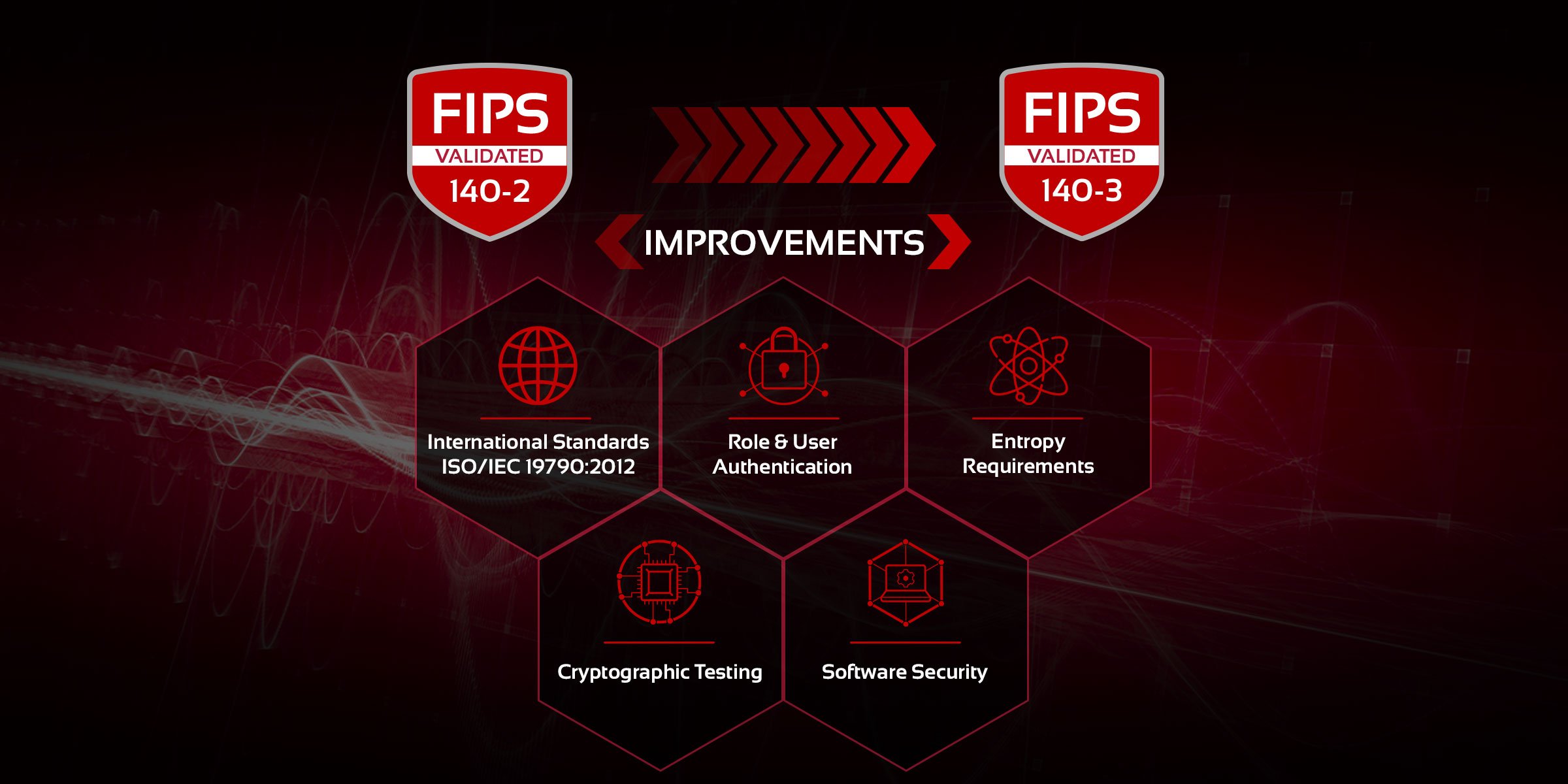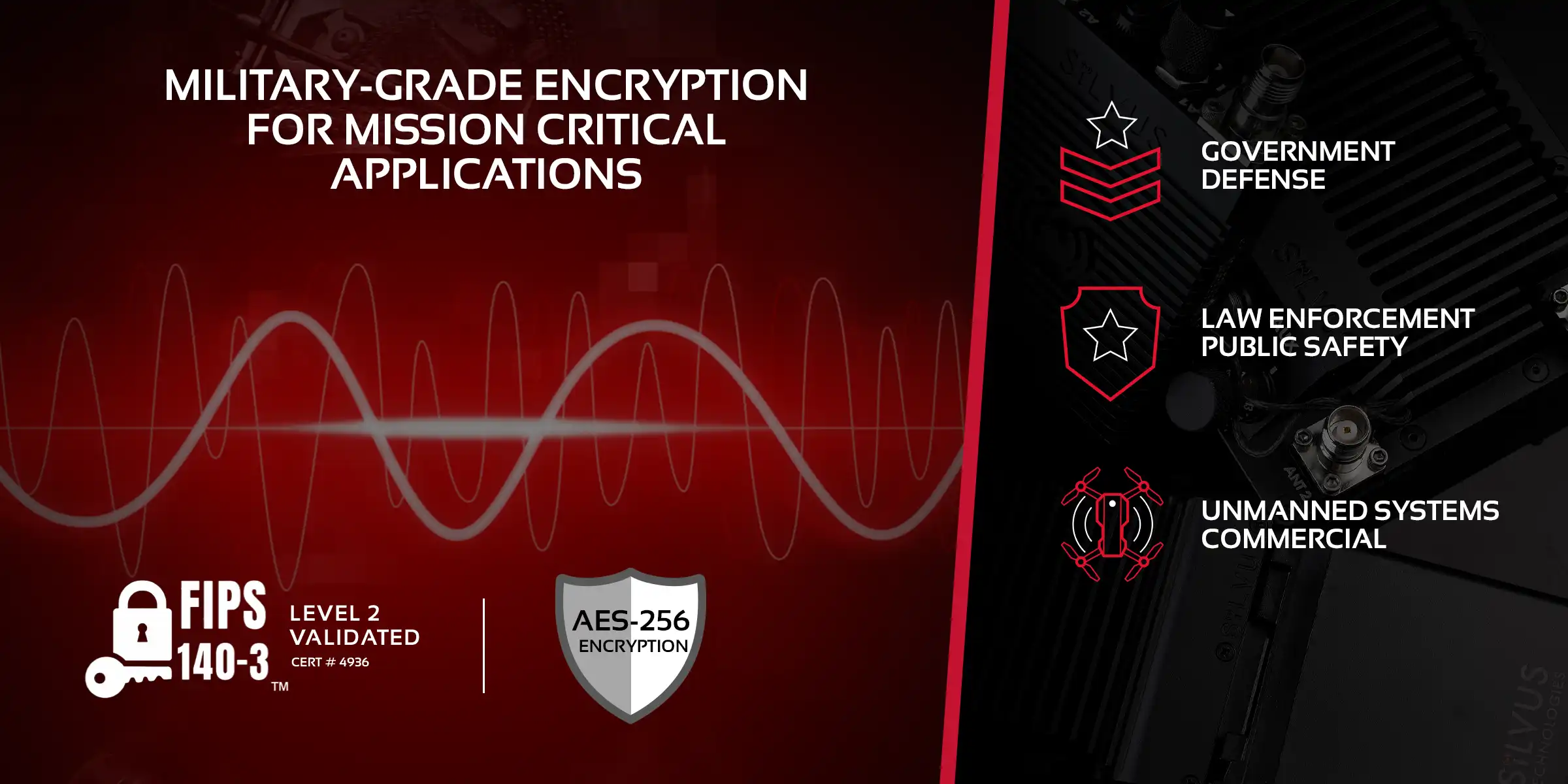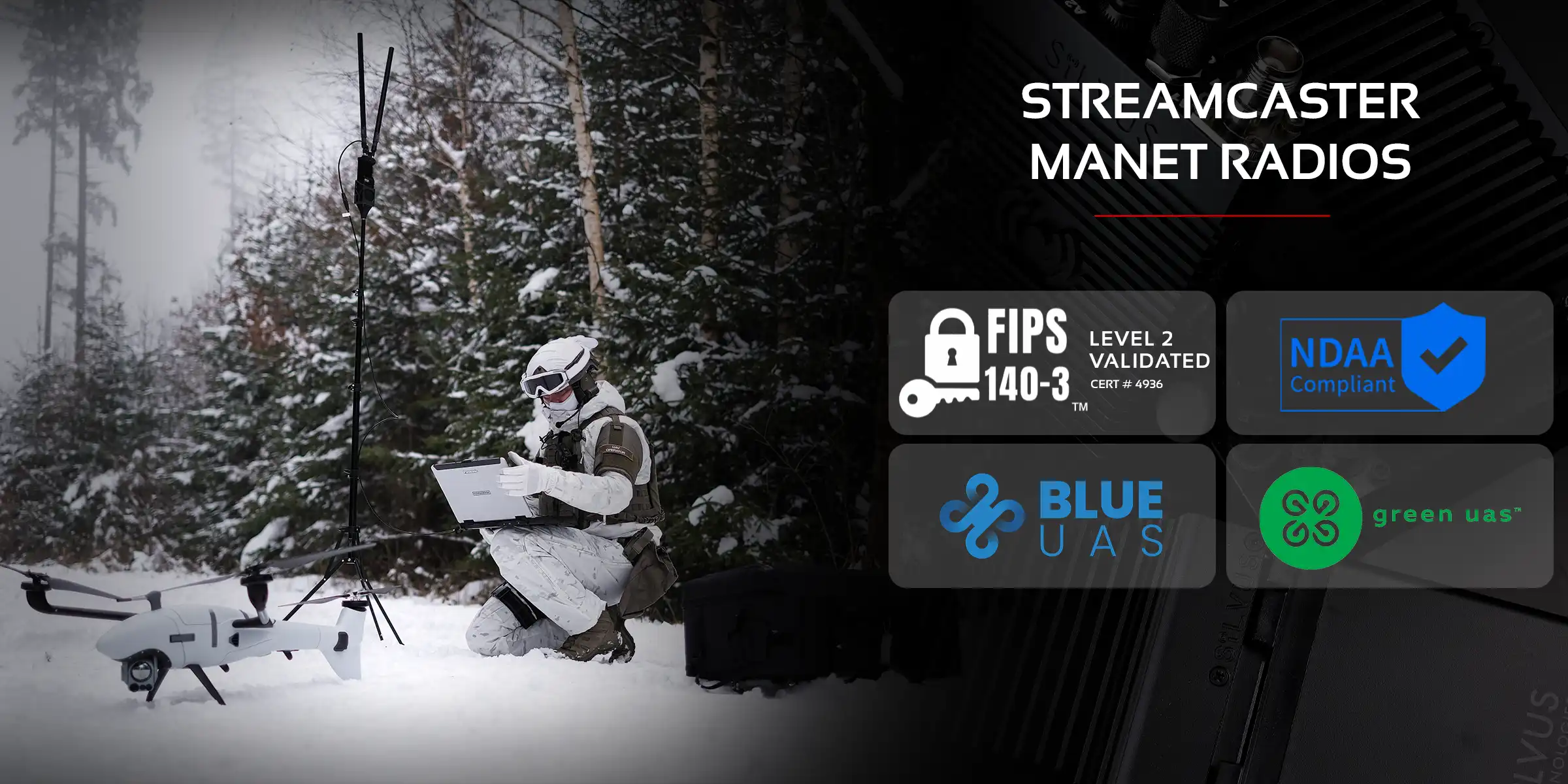The Waveform Blog
Silvus StreamCaster — Leading the Way: The Industry’s First MANET Radio To Receive FIPS 140-3 Level 2 Validation
StreamCaster FIPS 140-3 Validation

Solving Cybersecurity Threats In Tactical Communications
FIPS 140-3: The New Standard for Cryptographic Modules
As cybersecurity threats continue to evolve, secure and resilient communications have never been more critical. As a result, agencies around the world are transitioning to the FIPS 140-3 standard to ensure security requirements are met for cryptographic modules that are used to protect sensitive or classified data.
Silvus Technologies is leading the way – becoming the first MANET radio manufacturer to achieve FIPS 140-3 Level 2 validation (Certificate #4936) for its widely deployed StreamCaster® MANET radios – setting a new industry benchmark for secure tactical communications.
Silvus is at the forefront of reshaping mesh network technology for mission critical applications on the ground, in the air, and at sea, providing network connectivity to those who keep us safe in any operational environment.
The Silvus StreamCaster family of MANET radios provide high-fidelity video, voice, and data communications, delivering actionable intelligence at the speed of relevance. At the heart of every StreamCaster is Silvus’ battle-proven MN-MIMO waveform technology, capable of linking hundreds of nodes with unmatched range, data throughput, EW resiliency, and scalability.
This edition of the Waveform Blog explores how FIPS 140-3 marks a significant step forward in cryptographic security standards, and how StreamCaster MANET radios achieving FIPS 140-3 Level 2 validation reinforces Silvus’ commitment as a trusted provider of secure, protected, and resilient communication solutions.
Understanding FIPS 140-3 Level 2 Validation And Its Importance In Tactical Communications
The Federal Information Processing Standards (FIPS) 140-3 is the latest U.S. Government security standard for cryptographic modules. Established and managed by the National Institute of Standards and Technology (NIST), FIPS 140-3 validation ensures that cryptographic solutions meet the U.S. Government’s highest security requirements for protecting sensitive data.
FIPS 140-3 Level 2 validation specifically addresses the need for enhanced physical security and tamper resistance. It requires cryptographic modules to have role-based authentication, enhanced identity-based authentication mechanisms, and physical security features that detect and respond to tampering attempts. Achieving FIPS 140-3 Level 2 validation means a device – such as StreamCaster MANET radios – meet strict federal cybersecurity standards, making them certified for use in critical government, defense, and enterprise applications where secure data transmission is paramount.

How Is FIPS 140-3 Different From FIPS 140-2?
What Are Its Advantages?
FIPS 140-3 replaces the long-standing FIPS 140-2 standard, bringing several key improvements that align with evolving cybersecurity threats and technological advancements. In the United States, federal agencies are required to use FIPS 140-3 validated modules, with September 2026 set as the sunset date for FIPS 140-2 certificates. Some of the key differences and advantages of FIPS 140-3 over the previous FIPS 140-2 standard include:
- Alignment with International Standards – FIPS 140-3 aligns with ISO/IEC 19790:2012, ensuring global cryptographic consistency with U.S. and allied partner nations’ encryption standards and adherence to modern cryptographic security best practices. This ensures that StreamCaster MANET radios meet security requirements not only in the U.S. but also across allied nations, making them deployable in multinational joint operations.
- More Stringent Authentication – Role and identity-based authentication mechanisms enhance access control to cryptographic functions.
- Improved Entropy Requirements – Ensures better randomness for cryptographic keys, reducing vulnerabilities.
- Updated Cryptographic Algorithm Testing – FIPS 140-3 includes more rigorous cryptographic testing requirements, ensuring compliance with modern encryption standards.
- Greater Emphasis on Software Security – The new standard strengthens protections against software-based attacks on cryptographic modules.
By adopting FIPS 140-3, organizations using StreamCaster MANET radios benefit from state-of-the-art cryptographic security, ensuring their communications remain protected against modern cyber threats.

Deeper Dive — FIPS 140-3 Level 2 Security Features
FIPS 140-3 Level 2 validation introduces several critical security features designed to safeguard cryptographic modules from tampering and unauthorized access. These include:
- Role-Based Authentication – Ensures only authorized personnel can configure or modify cryptographic settings as defined by different levels of permission. Additionally, strengthened access control mechanisms require specific user credentials for accessing secure operations.
- Physical Tamper Evidence – Cryptographic modules must incorporate mechanisms that detect and respond to tampering attempts, such as security seals or coatings that reveal evidence of intrusion.
- Tamper Response Mechanisms – Modules must take protective actions when physical tampering is detected, such as erasing cryptographic keys.
- Robust Random Number Generation – Strengthened entropy requirements for secure cryptographic key generation.
These features make FIPS 140-3 Level 2 validated devices like StreamCaster MANET radios ideal for securing classified communications and sensitive data information in high-risk environments.
FIPS 140-3 Support of Advanced Encryption Including AES-256
Advanced Encryption Standard (AES)-256 is one of the strongest encryption algorithms used worldwide for securing sensitive data. FIPS 140-3 ensures that cryptographic modules implement AES-256 and other encryption protocols securely by enforcing rigorous validation testing and cryptographic key management practices.
With FIPS 140-3 Level 2 validation, StreamCaster MANET radios provide:
- End-to-End Secure Communications – AES-256 encryption ensures that transmitted data remains confidential and protected from interception.
- Secure Key Management – Stringent cryptographic key generation, storage, and destruction methods prevent unauthorized access.
- Resilience Against Cyber Threats – Meeting the latest security standards ensures the radios are robust against evolving cyber-attack techniques.
By supporting AES-256 within a FIPS 140-3 framework, StreamCaster MANET radios deliver military-grade encryption to government, defense, and enterprise users, safeguarding their communications in contested and high-threat environments.

Silvus StreamCaster MANET Radios: Ensuring Cyber and Supply Chain Security
Beyond achieving FIPS 140-3 Level 2 validation, Silvus StreamCaster MANET radios adhere to the highest cybersecurity and supply chain security standards. StreamCaster MANET radios are NDAA (National Defense Authorization Act) compliant, ensuring they meet stringent requirements for use in U.S. government and military applications.
Additionally, several StreamCaster MANET radio models, including the SC4200 and SL4200, have earned Defense Innovation Unit’s Blue UAS Framework and the Association for Uncrewed Vehicle System’s International Green UAS Certification, affirming their compliance with the Department of Defense’s (DoD) rigorous cybersecurity testing and supply chain security standards. These certifications provide government and military agencies with the assurance that StreamCaster MANET radios are built using trusted components, are free from foreign threats, and suitable for use in Blue UAS platforms and other critical defense and national security operations.

StreamCaster: The World’s Most Advanced Tactical MANET Radios
Silvus Technologies continues to reinforce its leadership position in secure tactical communications by achieving FIPS 140-3 Level 2 validation for its cryptographic modules, making StreamCaster MANET radios the first tactical radios to reach this security milestone. This certification ensures that Silvus radios meet the latest U.S. Government encryption standards, providing robust AES-256 encryption, enhanced tamper resistance, and compliance with the highest cybersecurity requirements. Silvus customers are able to access FIPS 140-3 Level 2 encryption and capability enhancements through a software update in the StreamScape 5 network management software.
With additional certifications, including NDAA compliance, Blue UAS Framework, and Green UAS Certification, StreamCaster radios offer unparalleled security and reliability for military, government, unmanned systems, and enterprise applications. By choosing Silvus StreamCaster, organizations can be confident they are deploying the most secure and resilient MANET radios available, engineered to perform in the most challenging and contested environments of today and tomorrow.
LEARN MORE
Contact Silvus today or Request a Demo to learn firsthand how Silvus can advance your tactical communications capabilities wherever the mission takes you.
